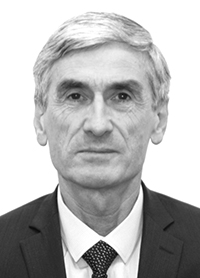MOTOR COORDINATION, VISUAL FUNCTION AND FUNCTIONAL/ SENSORY VISION TRAINING SYSTEM FOR VOLLEYBALL SPORT
Ключевые слова:
volleyball practices, visual function, motor coordination, training complex, health agenda.Аннотация
Objective of the study was to test and analyze benefits of a new visual function / motor coordination training system for volleyball players.
Methods and structure of the study. We run a yearly test of the visual function / motor coordination training equipment at volleyball sports schools of Kabardino-Balkarian State University and Kabardino-Balkarian State Agrarian University. We sampled for the tests the 9-10 to 19-20 year-old volleyball players (n=208) split up into six Reference Groups (RG) and six Experimental Groups (EG). The sample progress was tested by the direct/ feedback visual function and technical and tactical action accuracy tests.
Results and conclusion. Special trainings have proved to contribute up to 30-50% in the visual function / functional vision progress, although the traditional training systems never offer training equipment with a feedback capacity for the data flow accuracy control.
The experimental visual function / motor coordination training system for volleyball players was tested highly beneficial for harmonized motor coordination / visual function progress in the Experimental group versus the traditional training system. The new training technology effectively facilitated the visual function / technical and tactical action progress as verified by the individual progress profiles and databases. We recommend the new visual function / motor coordination training system and test data for application in volleyball training service.
Библиографические ссылки
Ashanin V.S., Golosov P.P., Gorbatenko Y.I. Computer technologies for diagnosing accuracy of athletes’ motor actions. Kharkov, KSAPC publ.. 2010.
Botyaev V.L. Theoretical substantiation and selection of tests to assess athletes’ abilities in complex coordination sports. Teoriya i praktika fiz. kultury. 2012. No. 4. pp. 86-89.
Zimkin N.V. Sensomotor and motor skills in sports. Leningrad, 1973. 21 p.
Ivoylov A.V. Precision movements in sports games. Collected works. Volgograd: VSIPC publ., 1986. 132 p.
Kekhayov A.N. Space, time, movement: vestibular, visual and auditory perceptions. Sofia: Meditsina i fizkultura publ., 1978. 43 p.
Komarov V.A. Correlation of spatial accuracy of movements and conditions of motor and visual afferentation in school-age children. PhD. dis. abstract. Moscow, 1973. 22 p.
Nazarenko L.D. Stimulated development of basic motor coordination in schoolchildren of different ages. Moscow, 2003. 401 p.
Platonov K.K. Psychological issues of simulator theory. Voprosy psikhologii. 1961. No. 4. pp. 77-87.
Ratov I.P. Study of sports movements and technical ways to manage changes in their characteristics. Doctoral diss. (Hab.). SCIPE publ.. Moscow, 1972. 909 p.
Farfel V.S. Motion control in sports. Moscow: Sovetskiy sport publ, 2011. 202 p.
Khaupshev M.Kh. Sensory-motor sensitivity in coordination of sports movements. Olympism and Olympic Movement. World Congress. Kiev, 2010.
Shestakov M.P., Averkina A.N. Simulation of human movement control. Collected works. Moscow, SportAkademPress publ., 2003. 360 p.

Дополнительные файлы
Опубликован
Версии
- 2022-01-17 (2)
- 2021-12-02 (1)
Как цитировать
Выпуск
Раздел
Лицензия

Это произведение доступно по лицензии Creative Commons «Attribution» («Атрибуция») 4.0 Всемирная.
